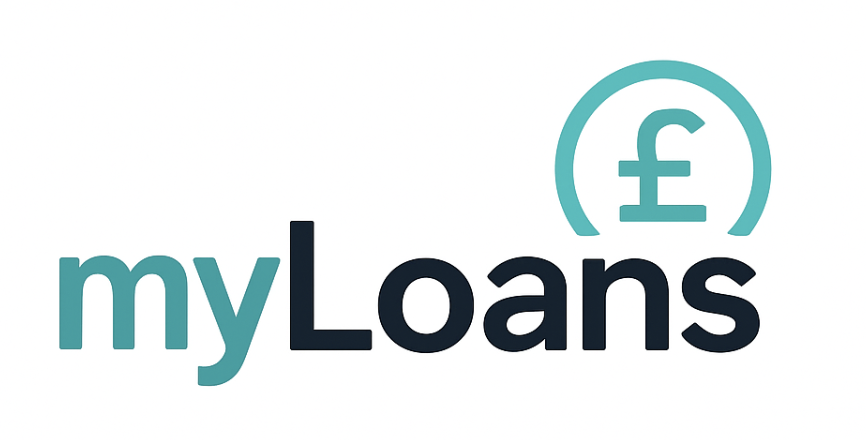Merchant Cash Advance Loans in the UK: A Complete Guide
For many small and medium-sized enterprises (SMEs) in the UK, access to fast and flexible funding can make all the difference between growth and stagnation. Traditional bank loans often involve lengthy applications and strict criteria, which is why more businesses are turning to merchant cash advance loans. Sometimes referred to as business cash advances or card machine loans, they provide a simple way to unlock capital based on future sales.
This guide explains what merchant cash advance loans are, how they work in the UK, their advantages and risks, and how to choose the right cash advance lenders for your business.
What Is a Merchant Cash Advance?
A merchant cash advance (MCA) is a form of funding where a business receives a lump sum upfront in exchange for a percentage of future debit or credit card sales. Unlike a traditional bank loan, there are no fixed monthly repayments. Instead, repayment is directly linked to your revenue flow.
This makes MCAs particularly attractive for businesses in retail, hospitality, and e-commerce — sectors that process a high volume of card transactions.
👉 Learn more about other UK business loan alternatives (inbound link).
How Merchant Cash Advance Loans Work in the UK
-
Application and Review – You apply with an MCA provider, who assesses your recent sales history (often 3–6 months of card statements).
-
Advance Offer – The lender offers a cash advance, typically from £3,000 up to £300,000, depending on sales turnover.
-
Repayment – Instead of fixed payments, the lender deducts an agreed percentage (often 5–20%) from daily card sales until the loan is repaid.
-
Factor Rate – Repayments are calculated using a factor rate (e.g. 1.2). Borrow £10,000 at a factor rate of 1.2, and you repay £12,000 over time.
Because repayments are linked to revenue, they rise in busy periods and fall during quieter months — offering a level of flexibility not found in standard bank loans.
Benefits of Merchant Cash Advances
1. Quick Access to Cash
MCAs can often be approved and funded within 24–48 hours. This makes them ideal for businesses needing urgent finance.
2. Flexible Repayments
Since repayments are tied to card takings, businesses don’t have to worry about meeting fixed instalments when sales dip.
3. No Collateral Required
Unlike secured loans, MCAs do not require you to risk property or assets. Approval is based on sales, not security.
4. High Approval Rates
Even businesses with weaker credit profiles may qualify, as decisions focus more on turnover.
👉 Compare cash advance lenders in the UK to find competitive rates (inbound link).
Drawbacks of Merchant Cash Advance Loans
While convenient, MCAs aren’t without risks.
-
High Costs: The factor rate can mean APRs equivalent to double or triple-digit percentages, making MCAs more expensive than standard loans.
-
Impact on Cash Flow: Daily deductions from card sales can create pressure during slow trading periods.
-
Lack of Regulation: Unlike consumer credit, merchant cash advances are not regulated by the Financial Conduct Authority (FCA) (source). This means businesses must be extra vigilant about terms and conditions.
Choosing the Right Cash Advance Lender
When evaluating merchant cash advance lenders UK, consider:
-
Transparency – Are all fees, rates, and repayment terms clearly explained?
-
Reputation – Check reviews and testimonials to see how other businesses have fared.
-
Speed vs. Cost – Some lenders prioritise fast funding, others offer lower factor rates. Balance both to suit your needs.
-
Customer Support – Look for lenders offering clear communication and ongoing support.
👉 Browse our list of UK cash advance providers for vetted options (inbound link).
Alternatives to Merchant Cash Advances
If you’re unsure whether an MCA is right for your business, consider alternatives:
-
Business loans from banks – Lower rates, though with stricter requirements.
-
Credit unions – Community-based lenders offering fair terms (find a credit union).
-
Government-backed schemes – Check the British Business Bank for support programmes.
-
Invoice finance – Unlock cash tied up in unpaid invoices.
👉 Read our guide on UK business loan comparisons (inbound link).
Merchant Cash Advance in the UK
The UK market for merchant cash advance loans continues to expand, with providers catering to SMEs that might otherwise struggle to secure funding. Businesses should weigh the flexibility and speed of MCAs against their cost and lack of regulation.
By carefully assessing your sales patterns, comparing cash advance lenders, and considering alternatives, you can determine whether this form of finance aligns with your goals.
Conclusion
Merchant cash advances can be a lifeline for businesses needing quick access to capital. Their flexible repayment model tied to card sales makes them appealing to many UK SMEs. However, they come with high costs and fewer consumer protections compared to regulated loans.
The key is to shop around, ask the right questions, and always compare MCAs with other funding solutions. With the right planning, a cash advance UK can provide the financial support your business needs to grow.
Alternatives to Payday Loans | Safer Borrowing Options
Payday loans are often marketed as a quick fix for cash emergencies, but they are not the only option available. Whether you’re facing an unexpected bill, car repair, or temporary cash shortfall, there are several alternatives to payday loans that may offer lower...
Payday Loans with Bad Credit | Direct Lender Options
If you’ve been refused credit elsewhere and are wondering whether you can still get a payday loan with bad credit, you’re not alone. Thousands of people in the UK search every month for options like “payday loans with bad credit” or “direct lender payday loans”. While...
Personal Loan Debt Consolidation UK – Is It Right for You?
Juggling multiple credit cards, overdrafts, or loans can be stressful and expensive. A debt consolidation loan allows you to combine everything into a single monthly repayment, often at a lower interest rate. In 2025, UK lenders from high street banks to online...
Emergency Loans UK – How to Borrow Fast in 2025
When an urgent expense hits — like car repairs, medical bills, or a broken boiler — quick access to funds can be essential. In 2025, emergency loans in the UK provide a way to borrow fast, with some lenders offering same-day decisions and payouts. This guide explains...
Top 10 Personal Loan Providers UK 2025 – Rates, Features & Eligibility
The UK personal loan market in 2025 offers more choice than ever, with banks, supermarkets, online lenders, and credit unions all competing for borrowers. The best deal for you depends on your credit score, loan size, and repayment term — but comparing providers side...
Best Debt Consolidation Loans UK 2025 | Top Options
Managing multiple debts can feel overwhelming, especially with credit cards, overdrafts, and personal loans all charging different interest rates. A debt consolidation loan can simplify your finances by rolling everything into one fixed monthly repayment — often at a...
Best Bad Credit Loans UK 2025 – Top Lenders Compared
Having a poor credit score, CCJs, or past defaults doesn’t mean borrowing is out of reach. In 2025, several UK lenders specialise in products designed for people with bad credit — offering smaller loans, flexible repayment terms, and eligibility checks that won’t harm...
Home Repair Loans UK – How to Cover Unexpected Costs in 2025
A leaking roof, broken boiler, or urgent plumbing issue can quickly turn into an expensive problem — often when savings aren’t available. In 2025, home repair loans in the UK provide a way to spread the cost of essential fixes into manageable monthly repayments. This...
Green Energy Loans UK – How to Finance Eco-Friendly Home Improvements in 2025
Eco-friendly upgrades such as solar panels, insulation, heat pumps, and EV chargers can cut energy bills and boost property value — but they require a significant upfront investment. In 2025, green energy loans in the UK provide a way to spread the cost of sustainable...
Moving House Loans UK – How to Cover Relocation Costs in 2025
From deposits and removal vans to solicitor fees and new furniture, moving house in the UK can quickly add up to thousands of pounds. Not everyone has savings set aside to cover these costs upfront. In 2025, moving house loans in the UK provide a way to spread...
Education Loans UK – How to Fund Studies and Professional Courses in 2025
Not all education in the UK is covered by government student finance. Postgraduate degrees, professional qualifications, and private training often require self-funding — with tuition fees and course costs running into thousands of pounds. In 2025, education loans in...
Holiday Loans UK – How to Spread the Cost of Travel in 2025
Holidays can be some of the most rewarding experiences of the year, but they often come with a price tag that’s hard to cover upfront. From flights and hotels to all-inclusive packages and once-in-a-lifetime trips, the costs can add up quickly. In 2025, holiday loans...
Best Personal Loans UK 2025 – Top Lenders Compared
The UK personal loan market in 2025 is more competitive than ever, with high street banks, supermarkets, online lenders, and credit unions all offering products to suit different needs. Choosing the right provider can save you hundreds in interest and ensure...
Medical Loans UK – How to Finance Healthcare Costs in 2025
While the NHS covers most essential treatment, waiting lists, private care, and specialist procedures mean many people face out-of-pocket medical expenses. From dental work and fertility treatment to cosmetic surgery and urgent private healthcare, costs can run into...
Car Loans UK – Personal Loan vs Hire Purchase vs PCP in 2025
Buying a car in 2025 usually means more than just choosing the right vehicle — it also means deciding how to pay for it. In the UK, the three main options are a personal loan, hire purchase (HP), or personal contract purchase (PCP). Each has its own advantages,...
















